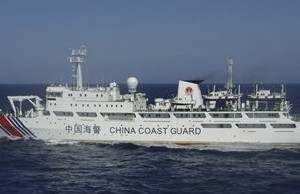MANILA, Philippines–It is even “more critical” now for the United States to show support for the Philippines in its dispute with China over the South China Sea region, according to former US Ambassador to the Philippines John Negroponte.
Negroponte, who was the US ambassador here from 1993 to 1996, said the two countries shared a common concern about the South China Sea “jurisdictional disputes” and warned that if the problem is not managed properly, it “could lead to serious miscalculations.”
“The Philippines and the United States share an interest in maintaining cooperative ties with China, while at the same time pursuing maritime policies aimed at preserving freedom of navigation, adherence to a code of conduct, and support for a “rules-based” settlement of claims dispute,” Negroponte said in a speech on Jan. 30 before the Makati Business Club on the political challenges and economic prospects facing US policy toward Southeast Asia and the Philippines.
Negroponte said the South China Sea disputes were not a concern only for claimant countries but also for the 10-member Association of Southeast Asian Nations (Asean), the United States and all Pacific countries supporting freedom of navigation and depending on open sea lanes for strategic and commercial activities.
He said the US policy on the South China Sea has evolved from one described as “nonposition” to one now of “far great engagement.”
Recalling his time as US ambassador here, Negroponte said he had encouraged Washington to pay attention to and have close consultation with the Philippines after the 1995 Mischief Reef dispute with China.
“Since then, the US has made discussion of conduct in the South China Sea as part of our regular dialogue with both China and the Philippines. It was important for the US to support our Philippine ally then, and it is even more critical to show support now,” he said.
Negroponte, who last week cochaired with Ambassador to the US Jose Cuisia Jr. a meeting and business mission of the US-Philippines Society’s board of directors, said the United States supports a “claim settlement process based on recognized maritime law” such as the UN Convention on the Law of the Sea, and pushed for Asean and China to recommit to its 2002 Declaration on a Code of Conduct so as to “reduce tensions and avoid the risk of escalation.”
He noted that China had already said it would not take part in the Philippines’ arbitration case against it before a UN arbitral tribunal.
The Philippines submitted a case against China with the UN tribunal in 2013 to challenge Beijing’s’s nine-dash-line claim on its maps which the latter has used as a basis to claim almost the entire South China Sea region, including areas considered to be under the Philippines’ exclusive economic zone.
Negroponte hailed the “smart policy course toward arbitration” that President Aquino and Foreign Secretary Albert del Rosario took in dealing with its dispute with China.
This approach had “broad bipartisan support in Washington and is also gaining appreciation by other claimants,” according to Negroponte as he noted Vietnam’s move last month to also submit its position to the UN tribunal supporting the Philippine position.
Another challenge for the Philippines and the United States that he said was as “critical as the South China Sea” dispute, was that of “dealing with the impact of climate change, responding to natural disasters and building resilience.”–Christine O. Avendaño


